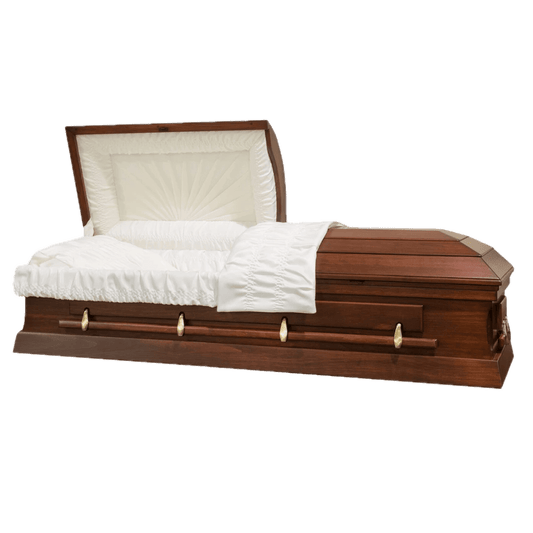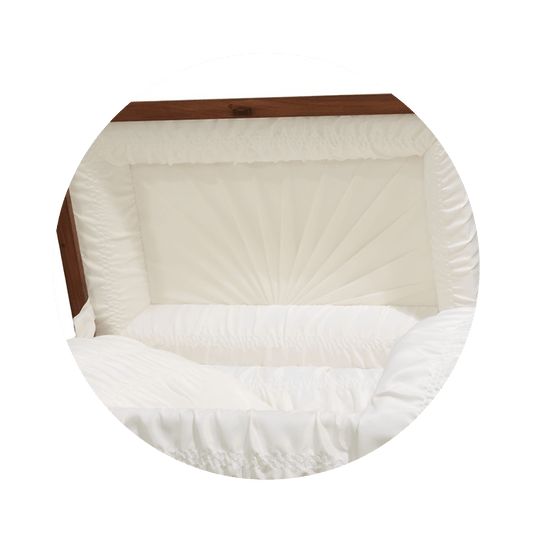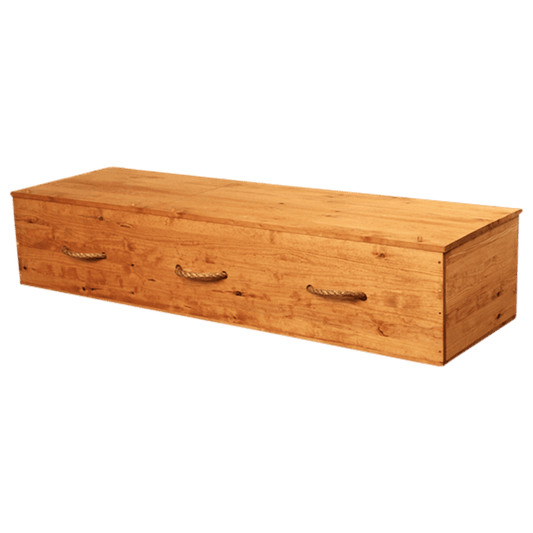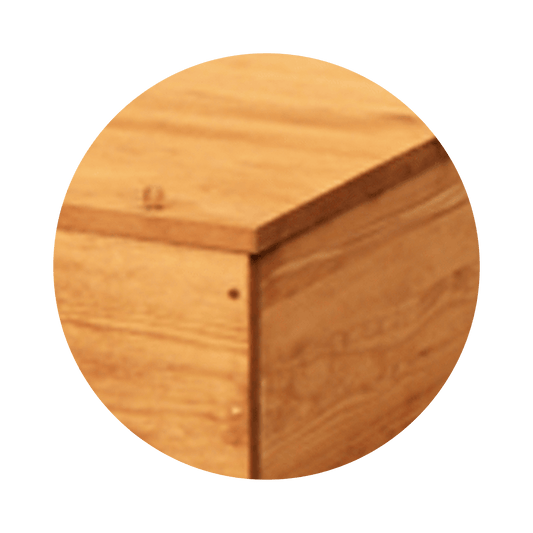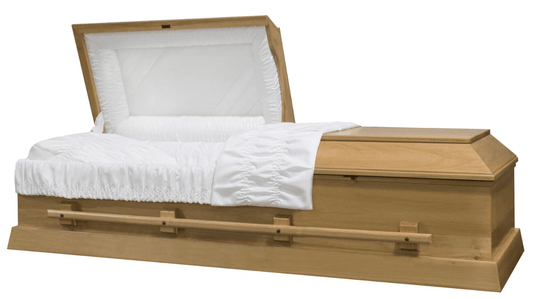Written By:
Joshua Siegel
Reviewed By:
Scott Ginsberg
Cross Checked By:
William Prout
What To Expect In A Buddhist Funeral?
Since the entire ethos of Buddhism revolves around peace, serenity, and tranquility, you can generally expect a buddhist funeral traditions to have a calm and somber tone throughout. As with any other religion, Buddhism also has several sects and sub-sects. This might lead to a difference in the rituals and customs adopted by the followers of the religion. However, apart from a few minor differences, the funerals tend to be largely the same.
Buddhist funeral traditions usually tend to be very simple and are often overseen by Buddhist monks who chant prayers and meditate to honor the dead. As there are no restrictions or rules mandating the place of a Buddhist funeral, they can either be held at a monastery, the family home, or even a funeral home.
Plan Your Farewell with Grace – Our Pre-Planned Caskets Offer Peace of Mind
A Glimpse Into The Buddhist Funeral Rituals And Customs
Buddhism, like Hinduism and Jainism, strongly believe in reincarnation. Therefore, many of their funeral rituals and buddhist funeral customs are rooted in this concept. Here’s a glimpse of some of the key rituals that Buddhists follow upon the death of their loved ones.
1. Cleansing and dressing of the deceased
Buddhist funeral customs believe that the soul of the deceased doesn’t leave the body right away. And so, upon the death of a person, Buddhists generally don’t touch, move, or disturb the body in any way for about 3-4 hours. The body is then cleansed, dressed in plain everyday clothing, and is kept cold.
2. Chanting and prayers
The buddhist funeral services for the deceased is usually officiated by Buddhist monks, who begin by ringing a gong or a bell to signify the start of the service. The monks usually start with a sermon and may also chant prayers; incense sticks are also burnt during this time. Other funeral rituals and customs may include offering a cloth to the officiating monks on behalf of the deceased as a thank you for officiating the funeral service. Additionally, family members during this time may walk around with sticks, which symbolizes the need for support during this time of grief.
3. Open casket viewing
A Buddhist funeral rites generally tends to have a viewing, if they do, it is almost always with an open casket. Along with the open casket, family members usually set up an altar with a picture of the deceased and an image of Buddha. Once the funeral service is over, the casket is sealed shut and is carried to the hearse by the family members. As the casket is carried to the hearse, the mourners generally tend to form a funeral procession.
4. Cremation
As Buddhists believe in reincarnation, the human body bears very little significance and is simply viewed as a vessel that contains the soul. Therefore, followers of Buddhism often prefer to cremate their deceased.
Things To Keep In Mind When Attending A Buddhist Funeral
When you’re attending a Buddhist funeral, it is important to ensure that you follow proper etiquette. Here’s a quick look at a few key things that you should bear in mind while attending one.
1. Duration of the funeral service
There’s no hard and fast rule as to how long the funeral should last. That said, most Buddhist funerals can be anywhere from 45 minutes to 75 minutes.
2. Appropriate attire
Since Buddhism is a strong advocate of simplicity, attire that may seem luxurious is better avoided seeing as it is looked down upon. It is not uncommon for the family members of the deceased to wear white with either an armband or a headband. However, depending on their region and culture, they may also choose to wear other colors as well. If you’re planning on attending a buddhist funeral customs, it is best to refrain from wearing bright colors as they symbolize happiness. Simple and plain clothing that features understated colors is ideal.
3. Funeral etiquette
Unlike western funerals, where the attendees first take a seat, Buddhists expect mourners to visit the altar first to pay respect to the deceased. When paying respects, it is customary for mourners to have their hands folded in prayer and to bow in front of the altar. Family members usually don’t expect the attendees to take part in chanting or prayers. So, if you’re unfamiliar with the prayers or songs being sung, you may choose to stay silent.
4. Flowers and gifts
It is acceptable for mourners and attendees of Buddhist funeral services to bring small gifts such as a candle, fruit, or an incense stick. You can also bring flowers to the funeral. However, keep in mind that bright colors represent happiness. Therefore, it is advisable to stick to white flowers instead of red.
Our Best Selling Products
Buddhists Have Long Mourning Periods
Buddhist families that have lost a loved one often have multiple Buddhist funeral services in addition to the one they conduct right after death. These services are usually held on the 3rd day, 7th day, 49th day, and 100th day after the death of the individual. If you’re close with the bereaved family, you may choose to take part in these services as a sign of respect for the deceased and to show your support to the family.

![Upgrade to Premium Weight [18-gauge steel]](http://titancasket.com/cdn/shop/products/casketthicknesswithnumbers.png?v=1680642906&width=533)


